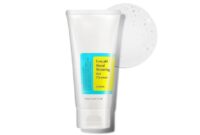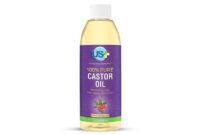You may be thinking, ‘Why do I need a product for ingrown toenails? Can’t I just wait for it to go away on its own?’
Unfortunately, ingrown toenails can be a painful and persistent problem that can lead to infection if left untreated. That’s why it’s important to have the right product to help manage and prevent ingrown toenails.
In this article, we’ll explore some of the best products for ingrown toenails, including creams, gels, clippers, files, essential oils, and home remedies. We’ll also provide some tips on how to prevent ingrown toenails from occurring in the first place.
Whether you’re dealing with a current ingrown toenail or looking to prevent future ones, this article will provide you with the information you need to keep your feet healthy and pain-free.
Creams and Gels for Ingrown Toenails
You’ll want to look for creams or gels specifically designed for ingrown toenails, as they contain ingredients like salicylic acid and tea tree oil that can help reduce inflammation and promote healing. These products work by softening the toenail and the skin around it, making it easier to lift the nail and prevent it from growing into the skin.
Look for a toenail softener that contains urea, which is a natural moisturizer that softens the nail without causing any irritation. Another option to consider is a chemical peel. This type of treatment involves applying a solution to the affected area, which causes the skin to peel away and reveal healthy new skin underneath. Chemical peels can be used to reduce inflammation and help the nail grow out properly.
However, they should only be performed by a trained professional, as they can be quite harsh and may cause irritation if not used correctly. Ultimately, the best product for ingrown toenails will depend on your individual needs and the severity of your condition, so it’s important to consult with a healthcare professional before trying any new treatments.
Clippers and Files for Ingrown Toenails
Feeling frustrated with painful, stubborn nails that just won’t cooperate? Try using specialized clippers and files designed to tackle even the toughest ingrown toenails. These tools are an essential part of any toenail care routine, especially for those prone to ingrown nails.
Clippers with curved blades and pointed tips allow for precision cutting, while files with a curved shape can gently smooth away rough edges and prevent further irritation.
While clippers and files can be a great option for mild cases of ingrown toenails, it’s important to note that severe cases may require professional treatments. If you have a persistent ingrown nail that’s causing significant pain or infection, it’s best to consult a podiatrist or foot specialist for proper diagnosis and treatment.
Don’t let ingrown toenails bring you down – with the right tools and care, you can keep your feet healthy and pain-free.
Essential Oils for Ingrown Toenails
Using essential oils can be a natural and gentle way to alleviate discomfort and promote healing for toenails that have grown into the skin, even if you’re initially skeptical of their effectiveness.
When it comes to selecting essential oils for ingrown toenails, you have the option of purchasing pre-made blends or creating your own DIY blends. While store-bought blends may be more convenient, making your own blend allows you to customize the oils to your specific needs and preferences.
Some of the best essential oils for ingrown toenails include tea tree oil, lavender oil, and peppermint oil. Tea tree oil is known for its anti-inflammatory and antifungal properties, making it an ideal choice for toenails that are swollen or infected. Lavender oil has calming properties and can help reduce pain and inflammation. Peppermint oil has a cooling effect and can help soothe irritated skin.
To create your own blend, mix a few drops of each oil with a carrier oil such as coconut or jojoba oil and apply to the affected area. Alternatively, you can purchase a pre-made blend specifically designed for ingrown toenails.
Home Remedies for Ingrown Toenails
If your toenail has grown into the skin, there are simple home remedies you can try to relieve discomfort and promote healing. One of the most effective remedies is soaking your feet in hot water mixed with Epsom salt. This will help soften the skin and reduce inflammation, making it easier to push the nail out of the skin.
Soak your feet for 15-20 minutes, and repeat this process twice a day until the pain subsides.
Another home remedy that can help treat ingrown toenails is apple cider vinegar. Soak a cotton ball in apple cider vinegar and place it on the affected area for 10-15 minutes, three times a day. The acidity of the vinegar will help prevent infection and reduce inflammation.
Additionally, you can mix equal parts of apple cider vinegar and water, and use it as a foot soak to further promote healing. These home remedies can be effective in treating ingrown toenails, but if the pain persists or the infection worsens, it’s important to seek medical attention.
Prevention Tips for Ingrown Toenails
Prevent painful toenail issues by following these simple tips! First and foremost, make sure you’re wearing proper footwear. Shoes that are too tight or too loose can cause your toenails to grow in the wrong direction, leading to ingrown toenails. Opt for shoes that fit well and have enough room for your toes to move around comfortably.
Another important tip is to trim your toenails properly. Cut them straight across and avoid rounding the corners, as this can encourage the nail to grow into the skin. Also, don’t cut your toenails too short, as this can also cause ingrown toenails. Instead, leave a little bit of white at the end of the nail.
By following these simple tips, you can prevent ingrown toenails and keep your feet healthy and pain-free.
Frequently Asked Questions
Are ingrown toenails more common in certain age groups or genders?
Do you ever wonder if certain age groups or genders are more prone to ingrown toenails? Well, the truth is, anyone can develop this pesky problem regardless of age or gender.
However, certain factors such as genetics, foot structure, and footwear choices can increase the likelihood of ingrown toenails. For example, individuals with curved toenails or those who wear tight-fitting shoes are at a higher risk. Additionally, improper nail trimming techniques can also contribute to ingrown toenails.
So, while age and gender may not play a role, taking proper care of your feet and nails can help prevent ingrown toenails from occurring.
Can ingrown toenails be a sign of a more serious health condition?
If you’re experiencing frequent ingrown toenails, it’s possible that there could be a more serious underlying health condition at play. While ingrown toenails themselves aren’t typically a major cause for concern, they can become infected and lead to more serious issues if left untreated.
Some possible health implications of ingrown toenails include diabetes, poor circulation, and nerve damage. To prevent ingrown toenails and the potential health issues that can come with them, it’s important to take good care of your feet and nails. Keep your toenails trimmed straight across and avoid wearing tight shoes or socks that can put pressure on your toes.
If you do develop an ingrown toenail, early intervention is key. Soaking your toe in warm water and gently lifting the nail can help alleviate the pain and discomfort, but if the issue persists or becomes infected, it’s important to seek medical attention.
How long does it typically take for an ingrown toenail to heal?
When dealing with an ingrown toenail, the healing time can vary depending on the severity of the issue and the treatment options chosen. Typically, it can take anywhere from a few days to a few weeks for the toenail to fully heal.
Treatment options can include soaking the affected foot in warm water, gently pushing the skin away from the nail, and wearing comfortable shoes that provide enough space for the toe to breathe. In more severe cases, a doctor may need to intervene and perform a procedure to remove the nail or prescribe antibiotics to prevent infection.
Regardless of the treatment chosen, it’s important to give the affected area time to heal properly to avoid any further complications. Keep in mind that while there are many products on the market that claim to heal ingrown toenails, it’s always best to consult with a medical professional to ensure the proper course of action is taken.
Is surgery always necessary to treat severe cases of ingrown toenails?
If you’re experiencing severe cases of ingrown toenails, you may be wondering if surgery is always necessary. The good news is that there are alternative treatments available that can be effective in treating ingrown toenails without the need for surgery.
These non-surgical options can include using antibiotics to prevent infection, soaking your feet in warm water and Epsom salts, and wearing comfortable shoes that don’t put pressure on your toes. However, it’s important to note that the effectiveness of these treatments may vary depending on the severity of your ingrown toenail.
If you find that these non-surgical options aren’t providing relief, it may be necessary to consider surgery as a more permanent solution.
Are there any lifestyle factors that can increase the risk of developing ingrown toenails?
To prevent ingrown toenails, you should pay attention to your footwear choices. Tight-fitting shoes and high heels can increase the risk of developing ingrown toenails. Instead, choose shoes that fit well and have ample room for your toes.
Additionally, keeping your toenails trimmed straight across and not too short can also help prevent ingrown toenails. Be sure to practice good foot hygiene and avoid cutting your toenails too close to the skin.
By taking these simple steps, you can reduce your chances of developing painful ingrown toenails and avoid the need for surgery.
Conclusion
So, you’ve learned about the best products for ingrown toenails, but now you may be wondering if there’s a way to prevent them altogether.
The truth is that there’s no foolproof method, but there are some tips you can follow to minimize your chances of developing ingrown toenails.
First, make sure you’re wearing properly fitting shoes that don’t squeeze your toes together.
Secondly, trim your toenails straight across and avoid cutting them too short.
Finally, keep your feet clean and dry, and avoid walking barefoot in public places.
By following these simple prevention tips and utilizing the products mentioned in this article, you can take control of your foot health and say goodbye to painful ingrown toenails.
Don’t let this common foot ailment slow you down, take action today and give your feet the care they deserve.


